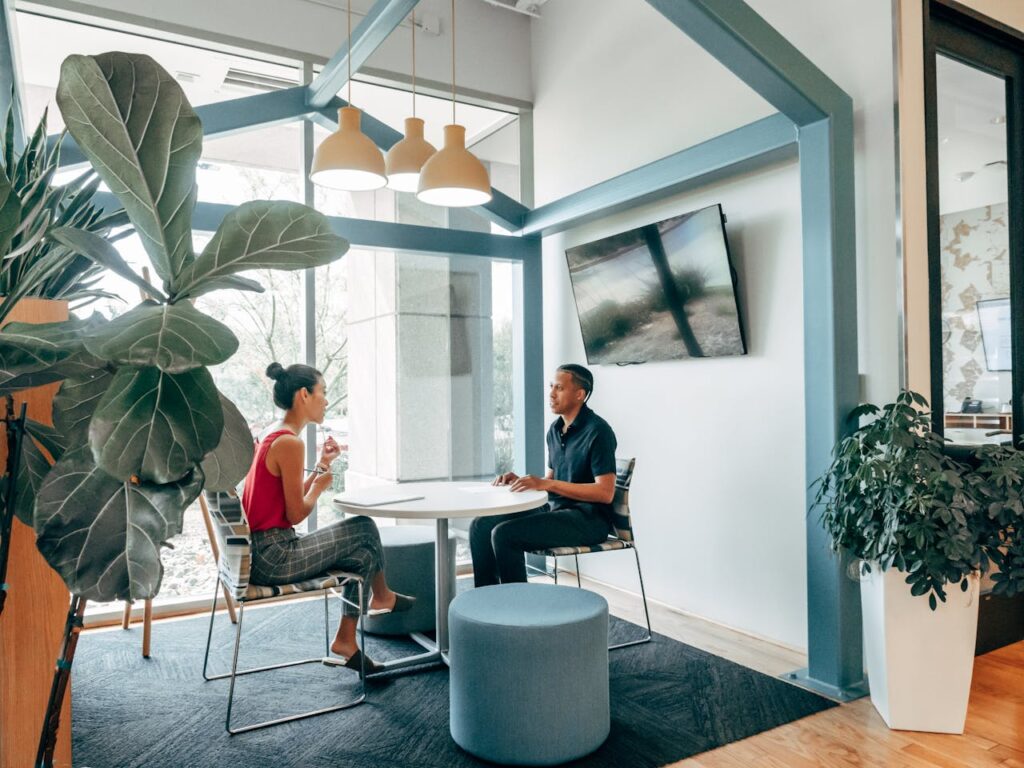How can employers prepare for an effective interview?

When you’re looking to hire, conducting an effective interview is paramount to ensure you identify the right talent for your organisation. With planned changes to employment law giving employees the right to claim unfair dismissal from day one of employment, finding the right candidate isn’t solely about the skills anymore. It’s also about finding someone who will fit your company culture and gel with your existing teams.
But success rarely comes from simply winging it – preparation is key! This blog post outlines ways to prepare and set yourself up for insightful and consistent interviews that identify the best candidates in both areas.

Define your organisation’s core values, culture, and goals
Before diving into interviews, it’s important to have a clear understanding of who you are as an organisation and what you stand for. Without this clarity, identifying the right candidate becomes increasingly challenging – how do you know you’ve found the best-fit individual if you’re not even sure what you’re looking for?
Collaborate with leadership
If you haven’t already, sit down with your organisation’s leaders to pinpoint and define your company’s core values and team dynamics. These conversations help establish the qualities and behaviours you want to see in potential hires.
Identify specific behaviours
Cultural fit goes beyond technical skills. It’s about finding someone whose approach, outlook, and personality align with your values. For example, you may prioritise traits like adaptability, collaboration, a growth mindset, resilience, or a willingness to go above and beyond.
By defining these attributes upfront, you’ll have a framework to guide your decision-making, and everyone involved in the hiring process will be clear on exactly what to look for during any interviews you hold.
Create a standard interview structure and evaluation process
Inconsistent interview practices can lead to unconscious bias – making judgments or decisions based on assumptions or stereotypes outside your conscious awareness – along with missed opportunities. Ensuring you have a well-defined structure in place ensures fairness and helps you consistently evaluate candidates across the board.
Here’s an example of an effective interview structure:
1. Introduction
Start by introducing yourself and your colleagues, including your roles in the business. This sets a welcoming tone and gives the candidate an understanding of who they’re speaking with.
2. Warm-up
Ask general questions, such as “Can you tell us about yourself?” to put the candidate at ease. If you sense the candidate is particularly nervous, you could even start with more of a conversational, informal question such as “How was your journey to the office?” if it’s a face-to-face interview, before getting into the more serious, interview-based questions.
3. Investigation
Dive into their professional journey with questions like “Talk us through your career” or “Tell me about your time at X”. Regarding whether you think the candidate would be a good organisational fit, you might also find it helpful to understand how much preparation (if any) they have done before the interview. For this, you can ask questions like “What do you know about us as a business?”.
4. Provide information
Share an overview of the role, its responsibilities, and your organisation. Fill in any gaps in the candidate’s understanding to ensure complete transparency. After all, an interview is as much about the candidate assessing if they think the role is for them, as it is you working out if they would be the right one for the job.
5. Core questions
Predefined, role-specific questions should cover technical, behavioural, and cultural aspects. For example, ask candidates to share specific examples of challenges they’ve faced or how they’ve contributed to team successes. It’s also the perfect time to ask how they would approach a particular situation or task relating to the role to understand their thought process.
6. Closing
Now is the opportunity for candidates to ask any questions they might have and for you to clearly outline the next steps in the recruitment process.
Implement a scoring system
To ensure maximum fairness across all candidates interviewed, use a numerical or categorical scale – such as 1 to 5 or “Below Expectations/Meets Expectations/Exceeds Expectations” – to rate them across various pre-defined criteria. This helps remove subjectivity from the process and keeps that unconscious bias at bay.
Build a panel of diverse interviewers
Diversity across your interview panel does more than support your organisational EDI initiatives. It’s a strategy for gaining well-rounded insights into candidates to help you make the best hiring decisions.
Encourage cross-functional perspectives
Include interviewers from different departments or roles within your organisation. They can bring fresh perspectives and identify qualities and skills that others might overlook.
Engage team members
Involve team members who will directly work with the candidate if they are to be successful. They can provide valuable insights into whether they see the individual thriving and gelling within the existing team dynamic or have any hesitations.
Schedule time for review
Build time into the diary to debrief with all interviewers who took part in the process. This ensures everyone has the chance to share their feedback and agree on the next steps collaboratively.
Do you need recruitment support?
Remember, a good interview is more than just asking questions. It’s about creating a meaningful conversation that uncovers whether a candidate is truly the right fit for your organisation. If you need support to ensure your hiring process is as effective as possible, our Vero Recruit team is here to help.
To discover how we can work with you as an extension of your internal team to recruit the best talent for you, get in contact with us today.
For more information on this topic, you can watch back our recent Vero Recruit webinar on demand – Interviewing like a pro: How to assess organisational fit during the hiring process.